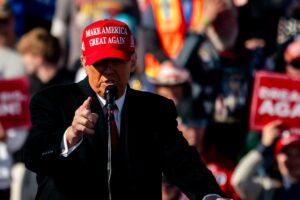The biggest professional sports leagues in the United States have dealt with a smattering of hazing issues over the past decade, ranging from NFL offensive lineman Richie Incognito’s bad behavior to Major League Baseball cracking down on rookies dressing up as women.
In response, some of the leagues have crafted dedicated anti-hazing policies, while others haven’t.
As Northwestern’s football program faces a barrage of hazing allegations, The Associated Press asked all four major U.S. pro leagues about their anti-hazing policies.
Baseball appears to have the most extensive anti-hazing and anti-bullying policy, which was first released in 2016. The NBA said hazing was prohibited in its operations manual. The NFL and NHL don’t appear to have specific guidelines, instead saying they believe any potential hazing issues are covered in personal conduct or anti-discrimination policies.
While former Northwestern players say hazing was so rampant in the football program it had become normalized, the biggest pro sports leagues in the U.S. have mostly avoided high-profile scandals over the past decade with the notable exception of Incognito.
The Miami offensive lineman was suspended for the final eight games of the 2013 season after teammate Jonathan Martin abruptly quit the team amid accusations he was being bullied. An NFL investigation determined Incognito and two other Dolphins offensive linemen persistently harassed Martin.
MLB’s hazing guidance came seven years ago, after pictures of rookies in women’s clothing became common on social media. The practice was mostly light-hearted, but increasingly frowned upon as attitudes around gender roles and stereotypes changed.
MLB
The league issued its anti-hazing policy in 2016, adding it as a supplement and clarification to the “Workplace Code of Conduct: Harassment & Discrimination” section in the sport’s collective bargaining agreement.
The policy says that players may not “engage in a pattern of verbal or physical conduct that is designed to demean, disgrace, or cause mental or physical harm.”
It also forbids some initation rituals, such as “dressing up as women or wearing costumes that may be offensive to individuals based on their race, sex, nationality, age, sexual orientation, gender identity and expression, or other characteristic.” Many players criticized the policy when it was created, but it has seemed to effectively end the once-common, cross-dressing rituals.
NBA
The league says its operations manual strictly prohibits bullying and hazing, which is defined as behavior that “harms, intimidates, offends, degrades, threatens, or humiliates another person or creates a risk to their health or safety.”
NFL
In response to an AP request for its anti-hazing policy, league spokesman Brian McCarthy referred to the NFL’s Personal Conduct Policy. Those guidelines don’t mention hazing specifically, but do expect personnel to “show respect for others inside and outside our workplace.”
It also expects players and team personnel to avoid doing things that are “illegal, violent, dangerous, or irresponsible, puts innocent victims at risk, damages the reputation of others in the game, and undercuts public respect and support for the NFL.”
NHL
The league said any punishment for hazing would fall under the commissioner’s broad powers within the collective bargaining agreement to discipline unacceptable behavior.
“The NHL believes that evaluating every incident on a case-by-case basis is more effective than establishing a matrix that assesses predetermined penalties for certain acts without any context,” NHL spokesman John Dellapina said in an email.
Source : AP News















